See where New Zealanders served in Vietnam by clicking on the icons in the map below. Click in the map to zoom in and move around or check out the Satellite and Terrain views for a different perspective.
View NZ forces in Vietnam, 1963-1975 in a larger map
Bong Son
The 1st New Zealand Services Medical Team (1NZSMT) was based at Bong Son in Binh Dinh province from April 1967 until December 1971. It treated civilian casualties of war and accident cases, and helped train Vietnamese nursing staff.
Qui Nhon
New Zealand's initial assistance to Vietnam was the civilian New Zealand Surgical Team, which operated from Binh Dinh province hospital in the city of Qui Nhon from April 1963 until March 1975. Initially six-strong, it was expanded to 14 in 1966. The team treated civilian casualties of war and accident cases, and helped train Vietnamese nursing staff.
Dong Ba Thin
In March 1972, the 2nd New Zealand Army Training Team Vietnam (2NZATTV) arrived at Dong Ba Thin, near Cam Ranh Bay. The team helped train Khmer Republic (Cambodian) infantry battalions in weapons use, tactics and first aid, and medical and technical training. The team was withdrawn from Vietnam in December 1972, together with the earlier 1st New Zealand Army Training Team Vietnam (1NZATTV).
Bien Hoa
161 Battery RNZA was the first New Zealand combat unit to go to Vietnam in July 1965. It was initially based at Bien Hoa air base and attached to the US 173rd Airborne Brigade. From June 1966, it came under the operational control of the 1st Australian Task Force (1ATF) at Nui Dat in Phuoc Tuy province. Initially limited to four guns, the battery increased to six guns in July 1966, and was withdrawn from Vietnam in May 1971.
Battle of Coral/Balmoral
In May-June 1968, New Zealand, Australian and United States forces were involved in a series of actions at FSB Coral and FSB Balmoral, around 20-kilometres north of Bien Hoa. Based at Coral and nearby FSB Coogee, 161 Battery RNZA helped fight off several strong attacks from North Vietnamese forces in this area.
Nui Dat
The 1st Australian Task Force (1ATF) was based at Nui Dat in Phuoc Tuy province. 161 Battery RNZA moved here in June 1966.
In May 1967, V (Victor) Company 1RNZIR arrived in South Vietnam from Malaysia, followed by W (Whiskey) Company in December. Based at Nui Dat, the infantry companies operated primarily within Phuoc Tuy province (now Ba Ria province).
4 Troop NZSAS was also based at Nui Dat from December 1968 until February 1971. The squadron was attached to an Australian SAS Squadron and was involved in intelligence gathering and ambush operations.
Battle of Long Tan
In August 1966, 161 Battery RNZA participated in the Battle of Long Tan.
Vung Tau
New Zealand personnel served with the 1st Australian Logistic Support Group (1ALSG) based at Vung Tau.
RNZAF helicopter pilots were attached to 9 Squadron RAAF, carrying troops to battle, flying helicopter gunships and directing artillery fire. New Zealand Forward Air Controller's sometimes also flew from Vung Tau.
Based at the 1st Australian Field Hospital, New Zealand military nurses and Red Cross volunteers gave medical care to soldiers and Vietnamese people.
Chi Lang
In January 1971, the 1st New Zealand Training Team Vietnam (1NZATTV) arrived at the National Training Centre at Chi Lang. The team helped train South Vietnamese platoon commanders in tactics and small arms effectiveness. The team was withdrawn from Vietnam in December 1972, together with the later 2nd New Zealand Army Training Team Vietnam (2NZATTV).
Saigon
A small group of New Zealanders, including the commander of V (Vietnam) Force, were based in Saigon. V Force Headquarters (V Force HQ) was located in the compound of the International Military Assistance Office. New Zealand troops also guarded the New Zealand Embassy after 1967. After the fall of Saigon in 1975, it was renamed Ho Chi Minh City.
Thu Dau Mot
The New Zealand Army Detachment (NEWZAD) arrived in South Vietnam in June 1964 and was based at Thu Dau Mot in the Binh Duong province. An engineer detachment, it was engaged in reconstruction and development projects until withdrawn in July 1965.






